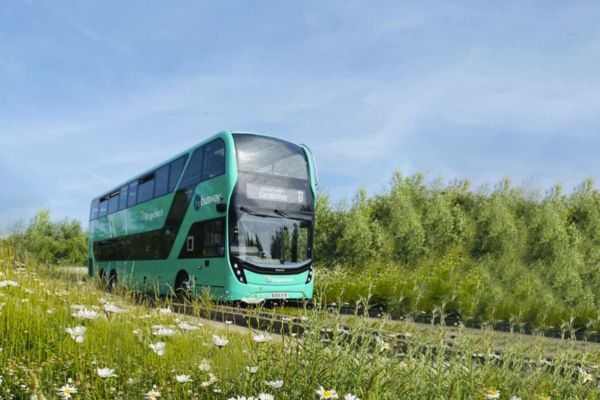We are committed to reducing smoke pollution in the city. It can be hazardous to health and is considered a nuisance.
Smoke contains tiny particles which can penetrate deep into the lungs. These particles can acerbate existing long-term health problems such as asthma and lung conditions.
Smoke control areas (SCAs)
A smoke control area (SCA) is an area designated by the council to reduce pollution from burning wood and coal. Within SCAs, certain rules apply around the emissions of smoke from chimneys of buildings and the type of appliance and fuel that can be burned.
We have three smoke control areas that cover the west and centre of the city and were declared in the 1960s. SCA rules do not currently apply to permanent residential moored vessels in these areas.
The Environment Act 2021 local authorities now have the discretion to expand the scope of their smoke control orders to include moored vessels (river and canal boats) following consultation. In this case, smoke emissions from the engine or to provide electric power do not fall under the scope of an SCA.
A map showing the extent of the areas is shown below.
A list of the streets within the areas is show below. This list is not exhaustive.
In an SCA, residents and businesses can still burn solid fuels, but certain rules apply:
- only ‘exempt appliances’ approved by DEFRA can be used to burn wood or logs
- if the stove or appliance is not exempt, then an authorised 'smokeless fuel' type must be used, for example, manufactured solid fuel (MSF) or anthracite
- the fuel used needs to carry the 'Ready to Burn' logo and the appliance and flue should be well maintained
- chimneys must not release 'substantial' smoke
Whilst the Clean Air Act and Defra guidance indicates that any visible smoke from a domestic chimney in an SCA would be a breach of the legislation, there is a need for a fair and proportionate approach (for example, the council recognises that smoke is likely to be emitted during lighting up periods, as kindling may be used and the stove needs to initially reach its operating efficiency). More information about reducing smoke emissions can be found below.
Cambridge City Council, under the SCA Regulations amended by Environment Act 2022, can issue fines for properties which emit smoke in a smoke control area.
If the council becomes aware that smoke is being emitted within that area, they will investigate and issue a written warning where necessary. If a resident or business continue to breach smoke control rules, the council policy will allow the council to:
- issue a notice of intent to the person(s) responsible
- issue a final notice with a financial penalty ranging from between £175 to £300
When determining a financial penalty, the council will use a fee matrix as a guide to determine appropriate and proportionate penalty.
Our Enforcement and Fee Policy [PDF, 0.2MB] is in line with available powers contained within Schedule 1A of the Clean Air Act 1993 (as amended by the Environment Act 2021).
If you live outside a smoke control area
If persistent smoke pollution from a chimney is observed outside a smoke control area, Cambridge City Council could take action under nuisance legislation.
In the first instance, we will issue advice and guidance to homes and businesses. This is in line with the councils current Corporate Enforcement Policy.
Reducing smoke emissions
For those residents who already have a solid fuel burning appliance, the following guidance and information can be used to ensure that you are using the appliance correctly. This will ensure the appliance is burning efficiently, saving you money and reducing smoke emissions.
Sweeping your chimney and flue
It is important to maintain the chimney and flue associated with your appliance to ensure that smoke emissions are reduced and debris inside the chimney does not catch alight and cause a fire.
As a preventative measure, you should ensure your chimney is swept regularly and the appliance maintained.
The National Association of Chimney Sweeps provides a list of chimney sweeps in the area. They can also provide guidance on how regularly a chimney should be swept and how you can maintain your appliance.
Blockages in the flue of your appliance could also lead to a build-up of carbon monoxide.
Carbon monoxide alarms
Carbon monoxide is a gas which is given off during the burning of solid fuels.
If a room is well sealed and the chimney flue is not drawing through enough air due to a blockage, carbon monoxide can build up in a room.
A build-up of carbon monoxide can be fatal.
A carbon monoxide alarm will alert you to higher levels before it becomes dangerous. As with smoke alarms, these should be tested regularly.
Using the correct fuel
Using the correct fuel for your appliance will mean it will burn efficiently, requiring less fuel and saving you money. It will also produce less smoke emissions.
In a smoke control area, you should only be using an approved smokeless fuel.
If you are using wood in your appliance, you should make sure it is well seasoned and has a moisture content of less than 20%. Guidance on how to check the moisture content of your wood is provided by Woodsure.
If you are in a smoke control area, you should be using an exempt appliance to burn wood.
If you buy wood for your appliance, make sure it has the Ready to Burn logo on it. This will mean it has already been checked for its moisture content.
You should never burn wood which has been painted or treated or glued, such as old furniture or other household waste, as the process of burning will cause the chemicals, such as cyanide, lead, carbon monoxide and hydrochloric acid, to be emitted into the air.
This could cause health problems for yourself and result in smoke emissions.
Bonfires
Read our bonfires and fireworks webpage for guidance on how to deliver a safe and environmentally responsible event.
Carbon-neutral alternatives
Using a centralised biomass boiler or combined heat and power system offers a carbon-neutral alternative to fossil-fuel heating. Burning wood pellets, logs or woodchip does the same. Although these systems might offer carbon savings, the benefits to climate change can conflict with the need to improve air quality.
We do not encourage the use of biomass for centralised boiler or combined heat and power systems, because of the potential negative impact on local air quality.
Complaints
If you have a complaint about smoke pollution, please fill out the form below.



